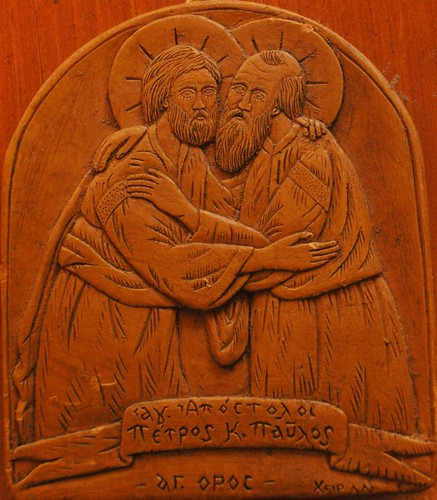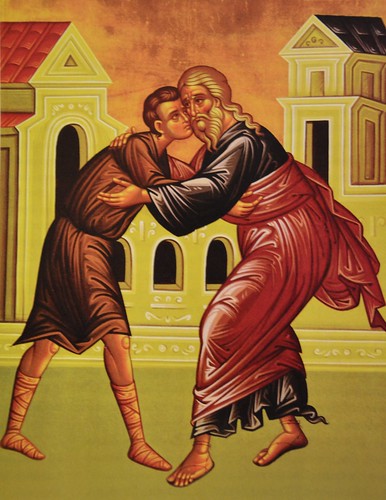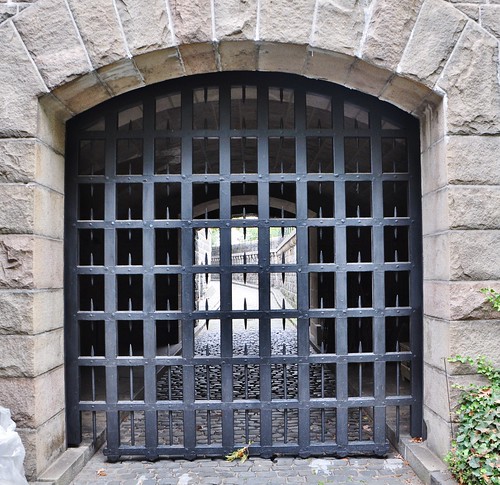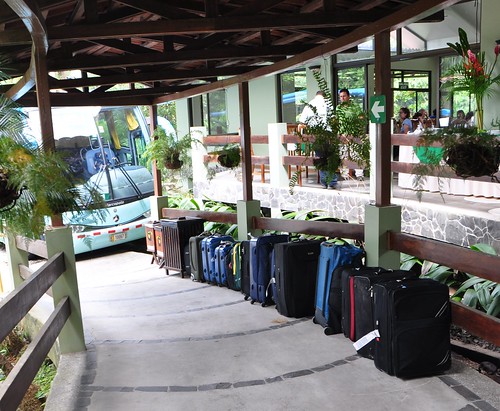
For the past two weeks the Winter Olympics have been going on enabling us to see some of the world’s best athletes. The Olympics in some way are a good metaphor for the Christian life. Athletes train very hard and aim to win the prize. They commit all their soul, heart and strength to the sport. But it is also true that the Olympics only run for 2 weeks out of every 4 years, so they represent a rather small part of the athletes whole life. Indeed the athletes have more to their life – some are parents, some are spouses, some are in school, some have jobs, all have to train and fund raise and just live life. They have to have food and transportation and housing. They have all the needs and many of the responsibilities of any citizens. Standing of the winner’s platform really ends up being only a few minutes of their entire life. Often the actual game they participate in may last only a few minutes. The Olympics are a very tiny part of a much bigger world and life.
So too is the Christian struggle. We are to love God with all our soul, heart, mind and strength. We have many mundane things we have to attend to just like everyone else – employment, housing, family, meals, health care, social and political involvement. Our Christian life is to spill over into the rest of the things we do, but being a Christian doesn’t free us from the cares of the world. We exercise our Christianity in the context of the greater whole of life, just like an Olympian. And this life turns out to be just a very small portion of the entirety of human history which is dwarfed even further by the eternity of God. Our life on earth ends up being something like the two weeks of the Olympics – a very small portion of the entire, grand picture of the universe in God’s eternity.
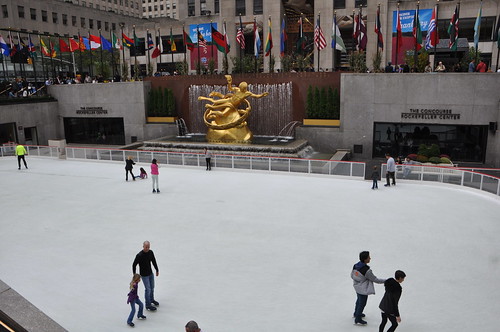
We encounter this Olympic vision in the Scriptures, for example in Hebrews 12:1-2 where we read:
Therefore we also, since we are surrounded by so great a cloud of witnesses, let us lay aside every weight, and the sin which so easily ensnares us, and let us run with endurance the race that is set before us, looking unto Jesus, the author and finisher of our faith, who for the joy that was set before Him endured the cross, despising the shame, and has sat down at the right hand of the throne of God. (Hebrews 12:1-2)
We have to lay aside the many obstacles to loving God and to receiving God’s love. All those things weigh us down, but we are to run the race, just like Olympians do and this requires great endurance on our part. But, most amazing of all we don’t have to do the hardest part of the Olympic race – Christ has already done it for us. He ran the race, endured the cross and death, then entered into heaven and now sits with God. All we have to do is stick with Him. He did the hard part and he invites us to share in the prize and reward.

Last Sunday in Orthodoxy, we heard a great deal about the expulsion of Adam and Eve from paradise. That narrative is recorded in Genesis 3. After Eve and Adam disobeyed God, they were filled with shame and tried to hide from God. Not unlike many of us do when we sin or do something we know we shouldn’t do. We try to hide it from spouse and family and friends.
After Adam and Eve sinned, God came looking for them, calling out: “Where are you?” (Genesis 3:9)
Every Lent God comes looking for us and calls to each of us: Where are you?
Where are you in your spiritual life?
Where are you in your Lenten efforts?
Where are you in relation to God and His Church?
Where ae you? Are you coming home to Him like the Prodigal Child?
Where are you? Are you seeking Him like Zacchaeus or the Publican?
Where are you? Are you seeing God in the people around you, the least of the brothers and sisters of Christ and ministering to Him?
Great Lent is a time for us to find our way home. To remind us not to be so self centered and rather to see Christ in the poor and needy. To seek Christ every day of our life. To see God because we are working on purity of heart. The pure in heart will see God.
In Great Lent we are walking the path carrying a cross on the way to Christ’s crucifixion:
Look at the icon of the Crucifixion: what do you see?
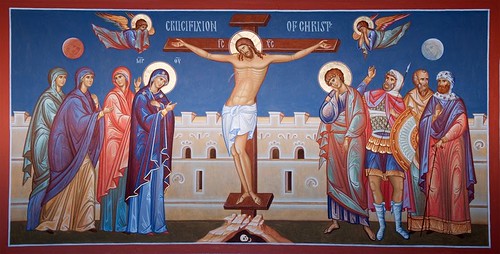
Just a man dying? Or do you see God?
It is an icon of God. That is who we see in the icon, nailed to the cross. If we only see a man dying and a group of saddened people around us, we are missing the main point. God is there revealing himself to us, open the eyes of your heart so that you can see.
We are preparing ourselves to receive the Bread of Heaven, the Body and Blood of Christ.
Holy Communion: what do you receive?
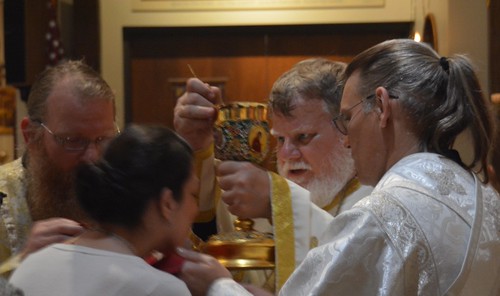
Bread and wine? Or Eternal life?
Do we see beyond the visible and physical?
Lent says it is time to see with the eyes of our heart. And we have to purify our heart in order to see with it. Lenten fasting is not about the stomach but about the heart.
Unfortunately often with our eyes we can look at others and only see their faults. We look and we see in order to criticize and condemn.
Or, we can repent of that thinking and we can see in the other, in the neighbor, in friend and family as well as in the stranger an opportunity to love them and serve them. We have to have the eyes to see. Great Lent endeavors to open the eyes of our heart.
Nathaniel in today’s Gospel was quick to judge and criticize Jesus: “Can anything good come from Nazareth?”
The response to his quick criticism: Come and see. Only when his eyes were open could Nathaniel see Christ.
A story from the desert fathers reminds us about what we are looking at and how we see the world around us:
Certain Old Men went to Abbâ Poemen to ask him a question, “Would you like, Abbâ Poemen, if we see our Brothers sleeping in the congregation, to give them a swift kick (or as one old English version has it: smite him mightily) and wake them up?” Abbâ Poemen answered them, “If I see my Brother sleeping, I place his head on my knees, and I give him a place to rest.”
Then one of the Old Men said to him, “And what, then, do you say to God?”
Abbâ Poemen replied, “I say this to God: You Yourself have said, ‘First of all, pluck the log out of your own eye, and then you will be able to see well enough to remove the splinter from your Brother’s eye.’” (St Matthew 7:3)

Great Lent is the time to take out the log from our own eye which blocks us from seeing clearly. To confess our sins, to acknowledge the power of sin in our life, so that we can see the icon as a window to heaven, to see the neighbor or the stranger as Jesus Christ, to see heaven opened and to see beyond the physical and visible into the eternal Kingdom which Jesus has opened to us.



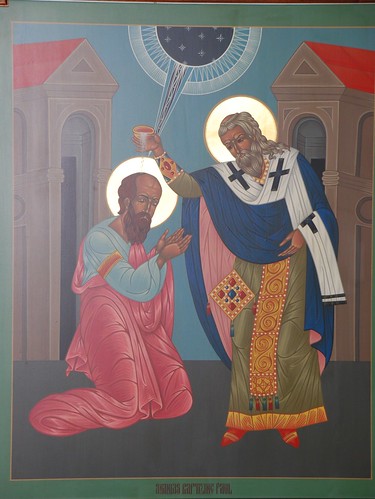
 All of the posts this year related to the themes of the Pre-Lenten Sundays are now gathered into one document and available at
All of the posts this year related to the themes of the Pre-Lenten Sundays are now gathered into one document and available at 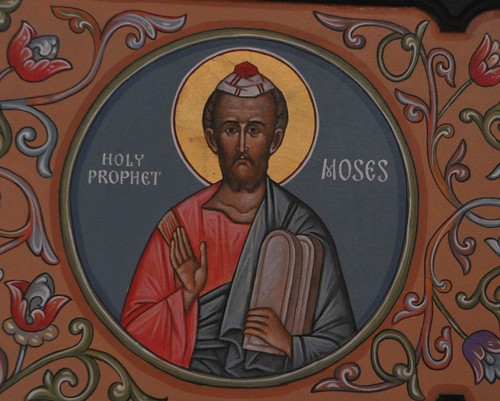

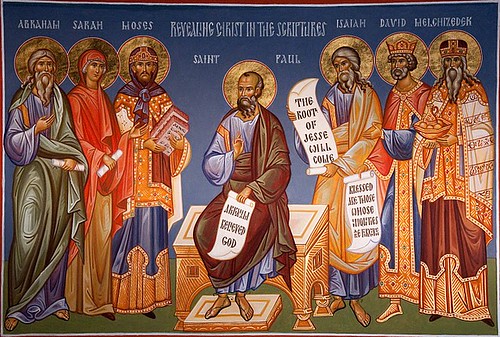
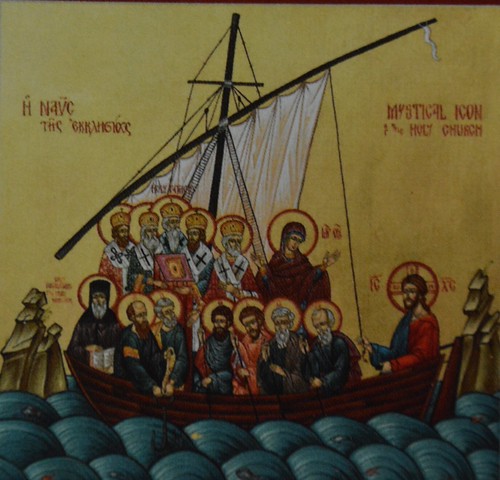






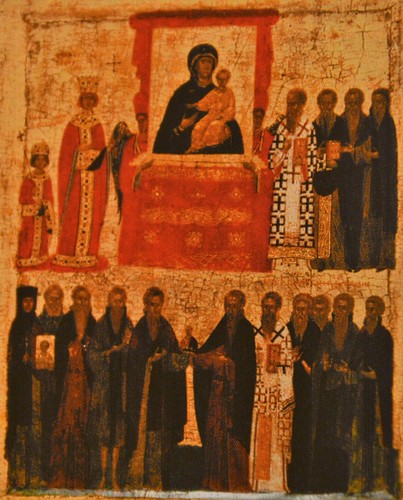
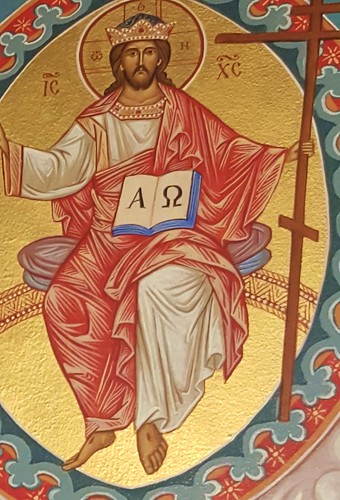


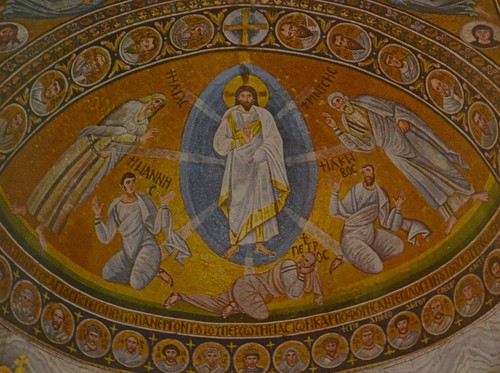
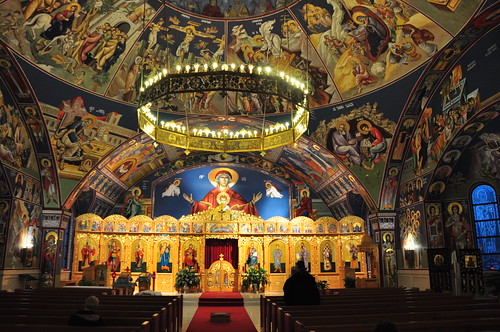



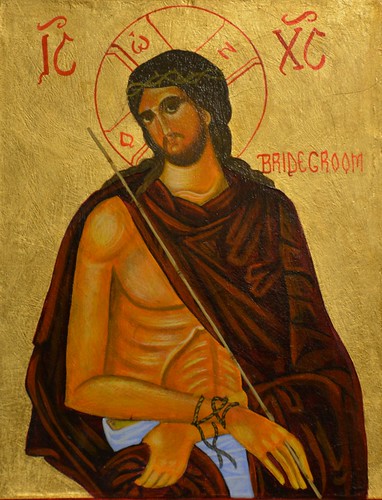
 The first sermon that Jesus preached according to St. Matthew was a one line, straight forward message: ‘
The first sermon that Jesus preached according to St. Matthew was a one line, straight forward message: ‘ Strangers to bodily passions . . . enslaved to the tyranny of the flesh
Strangers to bodily passions . . . enslaved to the tyranny of the flesh